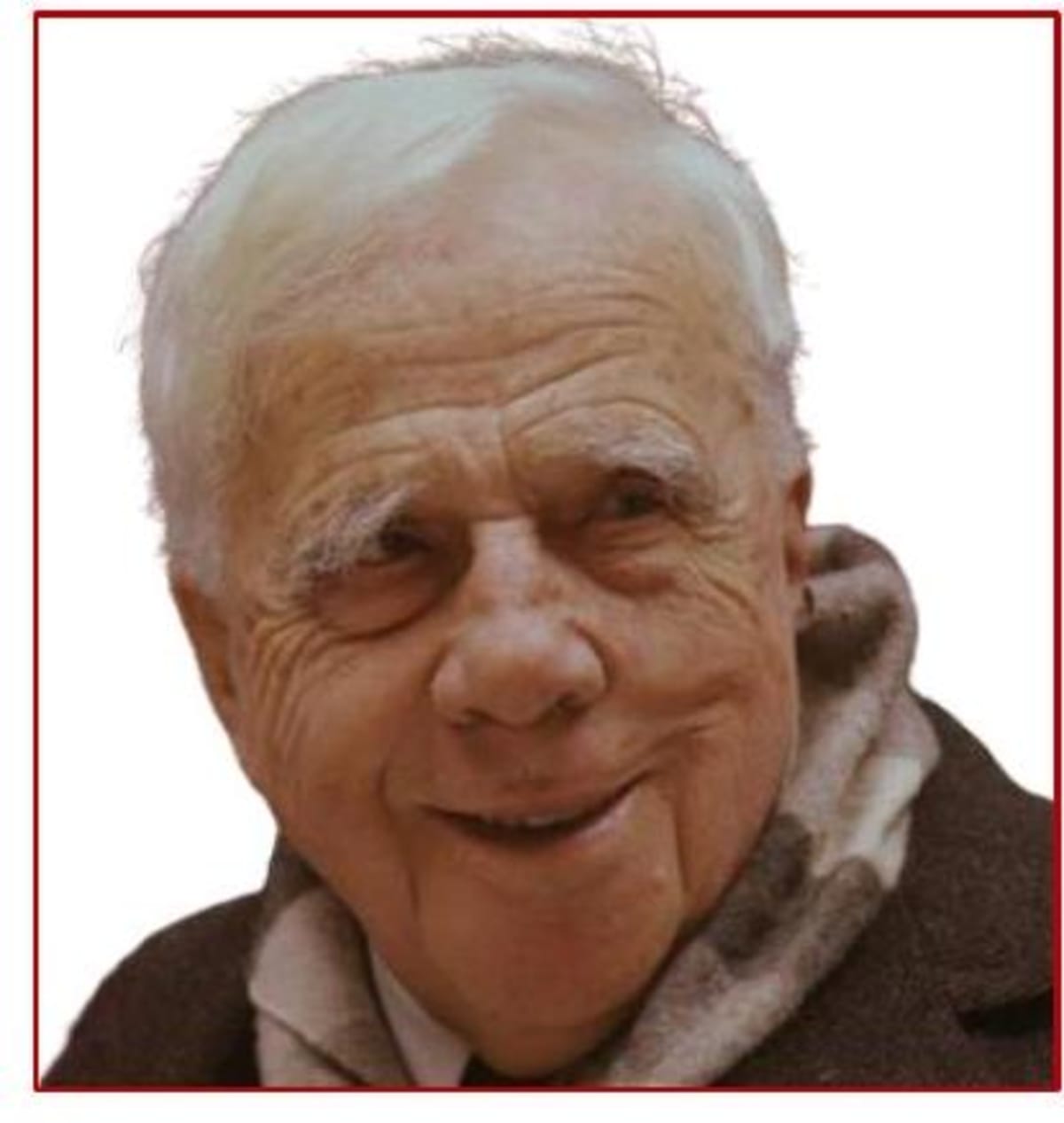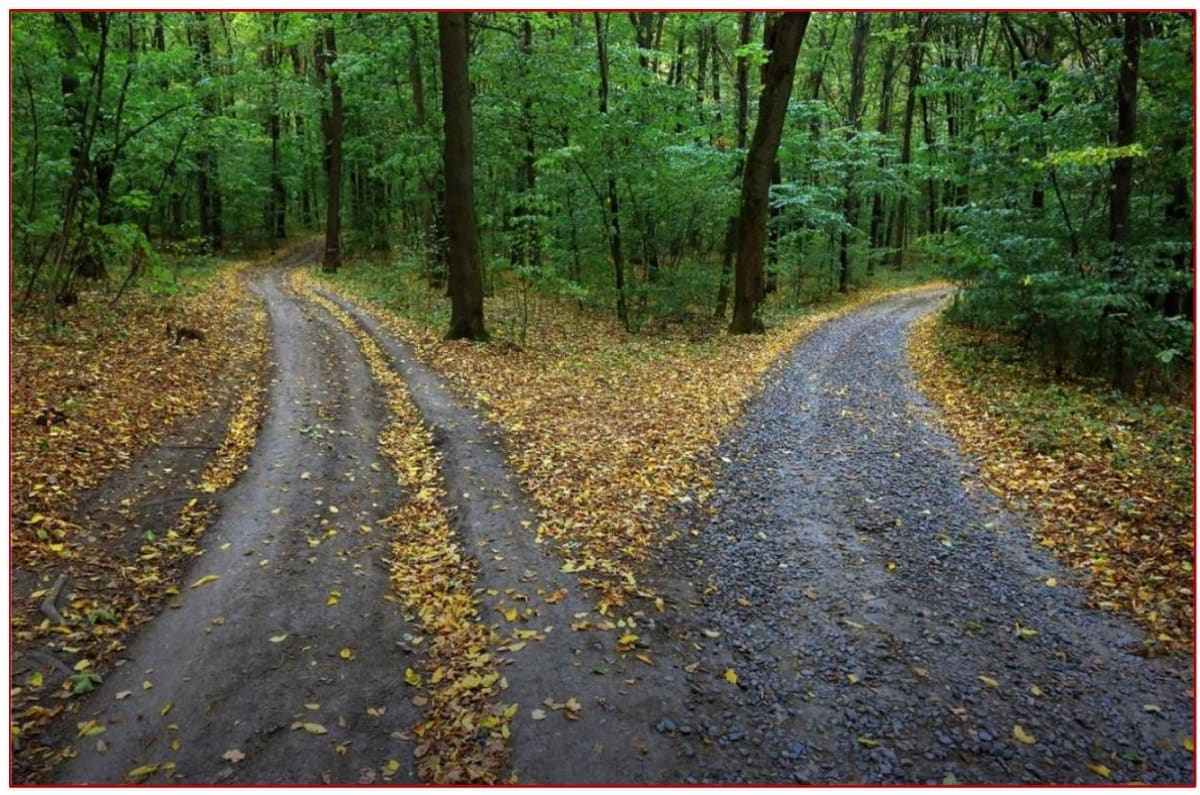The Road Not Taken
About the Poet
Robert Frost is widely recognized as one of the most influential American poets of the 20th century. He is arguably one of the most well-known American poets of all time, so it's not surprising that his work is taught in high schools and colleges across the nation. Robert Frost depicts realistic New England life through language and situations familiar to the common man.
Central Idea

1.0Metaphor of Choices Made in Life
In 'The Road Not Taken', Robert Frost makes a fascinating use of two roads as a metaphor for life. The two roads serve as a metaphor for the choice we make in life. Thus, the roads are, in fact, two alternative ways of life. The choice we make has a far-reaching consequence. The poet leaves the first road for the other day knowing well that he will never get a chance to come back to it again in life. He chooses the road less travelled by and this choice has made all the difference in his life.
Poet Standing at a Junction
The poem brings out the importance of making a choice. Frost uses the two roads as metaphors for life. They stand for two choices, two alternative ways of life and two different directions of life. What choice we make, it makes 'all the difference in life'. The poet stands at a junction in a yellow forest. Two roads are branching out in two different directions. He is a single traveller and can't travel on both the roads at the same time. He looks at the first road as far as he can see, till it bends in the undergrowth.
2.0Consequences of Choices
Two Roads: The Choice
The other road is 'just as fair as the first one'. And perhaps it presents a better claim in one sense. It is grassy and wants wear. Hence, after a period of thinking and indecision, the poet resolves the dilemma. He chooses the road which is 'less travelled by'. He leaves the first road for another day.
Poet's Genuine Doubt
Both the roads lie before him covered with the fallen leaves. When the poet leaves the first road for another day, he has also a genuine doubt. He knows how one way leads to the other and one marches on reaching a point of no return. He doubts if he will ever get a chance to walk on the road he has left.
Choice Has Made All the Difference
It is very difficult to say whether the road we have chosen will lead us to the desired end. It is very difficult to decide on the spur of the moment. Only the poet will be 'telling this with a sigh' that his choice has made all the difference in his life. Perhaps the road which was not taken would be more beneficial than the road which was chosen.

Poetic devices used in this poem (1) Anaphora - is the repetition of a word at the start of two or more consecutive lines. Example : And sorry I could not travel both And be one traveller, long I stood And looked down one as far as I could
(2) Alliteration - Alliteration is the repetition of consonant sounds in the same line. Examples : Wanted Wear Oh, I kept the first for another day!
(3) Personification - A figure of speech in which human characteristics are attributed to an abstract quality, animal, or inanimate object. Example : Poet calls both the paths 'just as fair' hinting at how they both looked inviting.
(4) Symbolic Imagery - refers to images within an artistic work, often including novels, poems, films, and other works, which are symbolic in nature.
(5) Repetition - a literary device that involves using the same word or phrase over and over again in a piece of writing or speech. Example : Yet knowing how way leads on to way Somewhere ages and ages hence.
(6) Metaphor - It makes a comparison between two non-similar things. Example : The poet uses the metaphor of the road to portray different life choices.
Recall
- The poet comes across a fork while walking in the road in a 'yellow wood' in the autumn He was standing there and he was thinking that which path is he going to take.
- The poet knew that he had to make a choice as he cannot travel both the roads at the same time. So, he stood there for a long time and looked down on both the roads.
- The poet looked at the first road and found that it has a bent which was covered with small plants and bushes.
- The poet looked at the other road and decided to travel by it. According to him this road seemed better and more impressive as it was covered with grass.
- It was not walked over by many people. However, as the poet walked on the road for some distance he realised the both the road have been walked over equally.
- The poet chooses the road that appears to be less travelled. He thinks that it has a better claim because it is grassy and needs to be walked on.
- The poet says that that both the roads were similar on that morning as no one has travelled on any of the roads. The leaves were still green and fresh as they have not been crushed by anyone while walking.
- The poet chooses to take the second route, saving the first for a later date. The poet questioned, though, whether he would ever be able to return to walk on the original road.
- The poet understood that once he made a decision, he would move on and make many more decisions before being able to go back and change his mind.
- At the end the poet discusses the effects of the decision he made. The poet claims that he will recall the day he made his decision at some point in the future. He would be exclaiming his choice while sighing, either in relief or regret ( relief of making the right choice or regret of making the wrong choice).
- He would mention that he chose the less-travelled path out of the two that led into the forest and that his decision had a profound effect on his life.
Related Article:-
Join ALLEN!
(Session 2026 - 27)